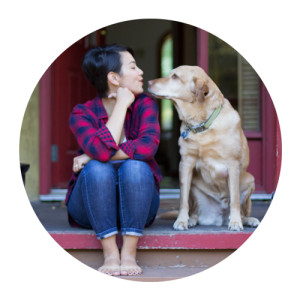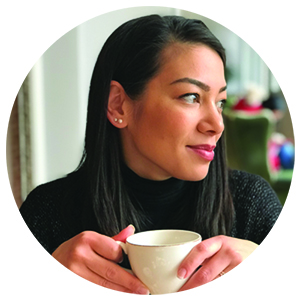When my family moved to a small town just outside of Vancouver I was one of two “not white” kids in my class. I say “not white” because I’m not exactly coloured. Like Mike in my class, I have dual heritage. My dad is Chinese, Mike’s is Japanese – they are both named Wayne and our moms are of European heritage making us, what has been historically called mixed-race, halfers or half-breeds. It didn’t seem like a big deal at the time, but Mike and I became good friends, possibly because of our shared experience. I remember how on International Food Day in grade one it was the job of Mike and I to teach the class how to use chopsticks. That shared experience is enough to bond anyone, and yet now, I don’t know anyone my age who doesn’t know how to use chopsticks.
We walked home from school the same way, so if Mike wasn’t my best friend, he was certainly the person I hung out with the most. He was even my first kiss. It was grade four and we were playing spin-the-bottle at his birthday party. Oddly enough, we were both first…I’m sure it wasn’t planned at all. We went to his playhouse, which we had worked hard on together to get “just right” before the party and were left alone to do the deed. His lips were dry and cracked and if truth be told, I wanted to be in there with Mark West.
By the time I graduated from highschool there were many kids of East Asian heritage in our town. There were stereotypes which I sometimes got dragged into, but I never saw it as a bad thing. I was expected to be good at math and eat rice…both of which I did. Chinese traditions, however, were not a regular part of my home life. My parents were divorced and I grew up in my maternal grandparent’s house, which was more British than any other culture. I received little red envelopes with money in them not just at Chinese New Year, but on my birthday, Christmas, and anytime I went to visit my Grandma Yuen, who was my father’s paternal grandmother.
My dad’s mom, Nana, was the oldest of 13 children. I absolutely loved our Chan family reunions because they took place at my aunt and uncle’s orchard in the Okanagan and there would be over 100 people: my Nana’s siblings and all of their children and then a bunch of little mixed-race children like me. It was the place I could really embody my Chinese heritage and I felt at home as we would stand around a table, assembling Joong otherwise known as Zongzi: a salted duck egg and Chinese pork surrounded by glutenous rice and wrapped in bamboo leaves. My Nana and her siblings would play Mahjong in a designated tent – no kids allowed, and it was the only time I really heard her speak Cantonese.
When my son was one month old, we had a Red Egg and Ginger party. All of my aunts and uncles from my dad’s side gathered and took eggs in exchange for red envelopes. He may have been the blondest child to ever have had such a celebration. When my Nana passed away not long after, however, my Chinese heritage seemed to die with her. There were no more family reunions, no more noodles ready for me when I would arrive at her house late at night, and no more red envelopes.
I have tried to keep some traditions alive. I am grateful that I can teach my children how to make dumplings, getting the folds just right and there are a few red envelopes that come out around Lunar New Year but in the last year, as I have watched the acts of violence and discrimination against the Asian community, my heart aches for my people. The men who were attacked are my father and the women who were shot down are my aunties. And yet, I am not quite sure what my place is or how I am supposed to respond because I am Asian, but not Asian enough. This is the tension that people of dual heritage feel. At work, in meetings in which diversity is being discussed, every other person of BIPOC (Black, Indigenous and people of colour) or BAME (Black Asian Minority Ethnic) heritage will be asked their opinion and I want to shout, “What about me?!” For me specifically, I am not seen as being Asian and yet, I am not white. In the disability community, some people believe I should not have a voice because I am not disabled and yet, every day I am faced with disabling factors in society because I help my daughter, who has Down syndrome, navigate the world. As a rule, it is not the role of those who are onlookers to replace the voice of those who are being oppressed but rather to amplify it. Instead, we must ask, how can we support you? How can we amplify your voice? But what space do those of us who straddle the line between onlooker and oppressed occupy?
What I am realizing more and more is that it’s not about being Asian or black or disabled or female. It is about being human. We are a global society. We are no longer relegated to our own little corners of the earth with separate sidewalks and separate entrances. We can share with each other, learn from each other, and love each other regardless of our ethnicity, gender, sexual orientation, socioeconomic status, ability or age. And in this global society the motto needs to be for us, by us. We are in this together and together we must speak out against hate, violence and discrimination and we must teach our children to do the same. It might feel uncomfortable to reach out for the first time, but as Brené Brown says, it’s harder to hate up close. Become friends with someone you might not think to become friends with. Invite your neighbour for a coffee or share stories with another parent at the school gate, stranger at the gym, or the person sitting next to you in Church…sit next to someone different in Church or on the bus or in the classroom. In a global society, it’s not difficult to find someone who might be a little bit different than you and you will be amazed at what you might learn and the beauty they will bring to your life.












2 Comments
I am always one to invite people over, or engage in conversation with new people, or take them under my wing a second, or one who hovers to the underdog or loves to envelope the downtrodden with love (and my famous noodles)! Sometimes I think there is no one who thinks like me hence I can understand why my children might be shy sometimes at me talking to just random people; but I know you are much the same Krista. There might only be 2 of us in this world (I know it’s not the case) but we are enough because our Love is big enough to spread its seeds. Therefore as Randy Newman said, and as Jesus says, “You’ve got a friend in me” rings true in our hearts and the hearts of ALL people if we but sow just a little deeper. Love, Love, Love….
Thank you! 100 percent agreed – this world in its attempt to embrace everyone is actually segregating out of the best of intents. I am fully in the disabled community but yet I also feel that disconnect too and def with my mom being full status native and grandpa but me – you really can’t tell much but I know the stories etc and have experienced multiple first hand prejudices being autistic etc yet I’ve been told a couple times in the last year that my “ white privileged voice” isn’t welcome. But I think everyone should be welcome…
I’m curious though – does this post apply to family and friends whom try to email, check in – even if it may not be the direct love language of the person directed to – and never hear back or even get a quick form of acknowledgment? Maybe it also applies to those in our related circles who can be difficult to some degree or another but there is still a little bit of care there? Is a warm welcome perhaps different to how we each communicate it and do we perhaps not see sometimes the warmth that is actually there because it’s not in our first love language ? ( yea ok not being subtle but seriously wondering)